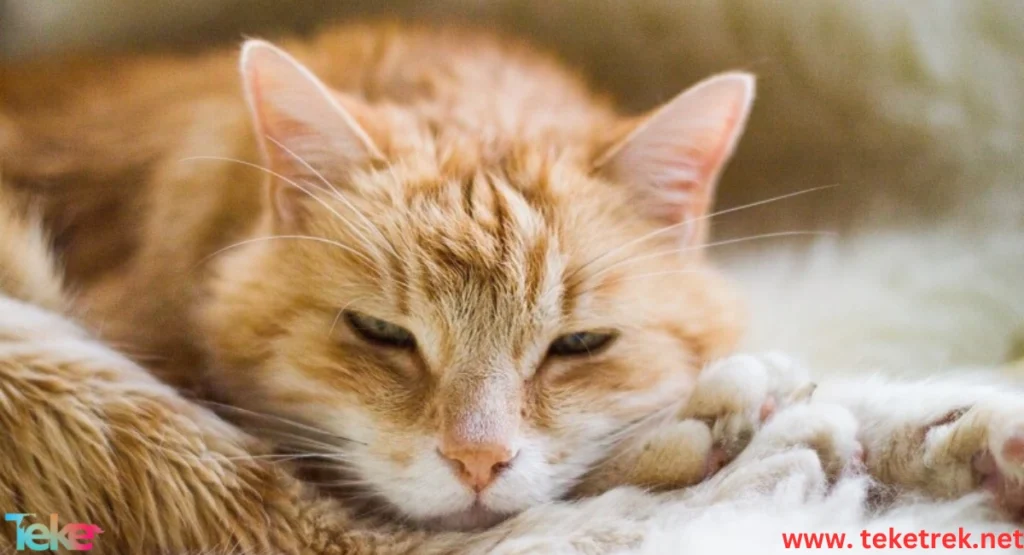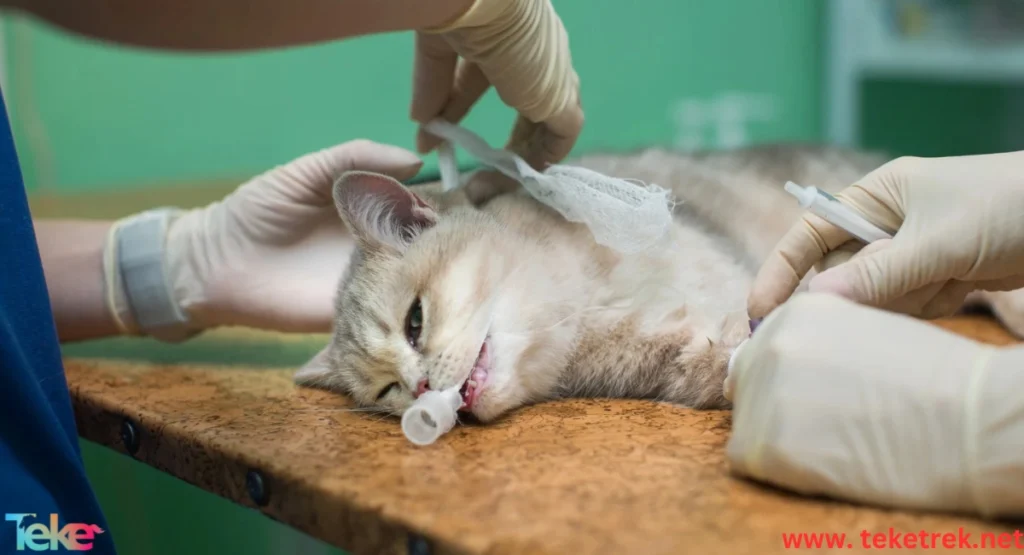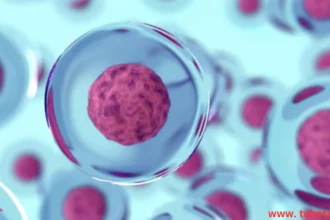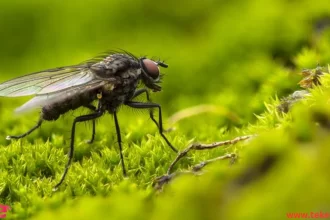IIn a fast-changing world, cats remain beloved members of our families. However, their sensitivity, especially regarding food and digestion, makes them vulnerable to food poisoning, which can be very serious. This article from teketrek، explores the causes, symptoms, and how to properly care for your cat in such cases.
Common Symptoms of Food Poisoning in Cats:
The most important step in protecting your cat from poisoning is early recognition of symptoms. Some symptoms may start mild and easy to ignore but can rapidly develop into a critical medical condition.
The most prominent warning signs include:
- Repeated vomiting: A clear sign the cat’s body is trying to expel the toxic substance.
- Diarrhea: Especially if watery or very foul-smelling.
- Sudden lethargy and laziness: A serious indicator of toxin impact on the liver or nervous system.
- Excessive salivation: Or thick saliva with a strange odor.
- Tremors or muscle spasms: Indicating direct effects on the central nervous system.
- Difficulty breathing: In severe poisoning, the respiratory system is quickly affected.
- Yellowing of gums or eyes: A sign of liver failure or toxins spreading in the bloodstream.
Even just one of these symptoms should prompt immediate action. Do not wait for multiple symptoms to appear; your cat’s life may be at stake.

Causes of Food Poisoning in Cats:
To deeply understand food poisoning, it is first essential to identify all potential sources. Cats are naturally curious and explore the world around them by smelling and tasting, but they cannot distinguish between what is toxic and what is safe.
Main causes include:
- Toxic human foods: Such as chocolate, onions, and garlic. Though familiar to us, these cause serious digestive disorders in cats. For example, chocolate contains theobromine, which fatally affects the heart and nervous system.
- Human medications: Paracetamol is among the most lethal drugs for cats, followed by ibuprofen and aspirin. Even small doses can cause acute liver failure.
- Pesticides and household chemicals: Cockroach and rodent poisons, even floor cleaners, may leave toxic residues. Cats often ingest these unknowingly while grooming themselves.
- Houseplants: Such as lilies, oleander, and English ivy, which contain toxic chemical compounds that can cause kidney failure or severe neurological disorders.
- Spoiled or contaminated food: Whether from leftover garbage or improperly stored wet food, they may harbor bacteria or mold causing direct food poisoning.
Often, the source of danger is something everyday and seemingly harmless. Therefore, it is crucial to inspect your cat’s environment carefully and not allow unsupervised roaming or eating.
A Comprehensive Guide to Winter Pet Care: Heating, Feeding, and Protecting from the Cold
What to Do If You Notice Symptoms of Poisoning?
If you notice any of the above symptoms, act quickly but calmly and carefully. Rash or reckless behavior could worsen the situation. Proper steps include:
- Stay calm: Your anxiety can worsen your cat’s condition.
- Remove the source of poisoning: Whether food, plant, or chemical.
- Do not induce vomiting unless specifically instructed by a vet.
- Keep a sample of the suspected substance to provide for veterinary analysis.
- Contact a veterinarian immediately and provide all details (what was ingested, when, symptoms, etc.).
- Do not treat your cat with human medicines—even children’s meds can be fatal.
Successful treatment depends on speed and accuracy, with no room for guesswork or delaying the vet visit.
Foods Harmful to Cats:
Though some cats show interest in human food, there is a long list of forbidden foods to avoid:
- Chocolate: Contains a deadly substance for cats even in small amounts.
- Onions and garlic: Cause destruction of red blood cells and may lead to fatal anemia.
- Grapes and raisins: Can cause irreversible acute kidney failure.
- Milk and dairy products: Contain lactose that cats cannot digest well.
- Coffee, tea, and caffeine generally: Powerful stimulants causing seizures and convulsions.
- Fat and bones: May cause gastrointestinal blockage or severe inflammation.
- Raw fish: Impairs absorption of vitamin B1, causing neurological symptoms.
- Raw dough: Ferments in the cat’s stomach causing dangerous bloating and producing alcohol internally.
Cats should never be treated like small humans; their diet is very different, and any non-designated food can be disastrous.
When to Visit the Veterinarian?
Not all cases can be managed at home; some require immediate veterinary intervention. Visit the vet if:
- Symptoms last more than an hour (vomiting or diarrhea).
- Neurological symptoms appear: seizures, dizziness, or abnormal behavior.
- Your cat is very young or old (weaker immunity).
- The ingested substance is unknown.
- Presence of blood in vomit or stool (sign of severe internal damage).
- Confirmed exposure to pesticides or chemicals even without symptoms.
Do not rely on your cat’s outward appearance; symptoms can be hidden. Veterinary diagnosis is the only guarantee for safety.

First Aid for Cat Poisoning:
Before reaching the vet, some immediate steps may save your cat’s life:
- Place your cat in a quiet area to avoid stimulating their nervous system.
- Do not give food or water before consulting the vet.
- Gently rinse the mouth with water if a caustic substance was ingested.
- Use activated charcoal only if the vet recommends it; it absorbs toxins from the stomach.
- Monitor breathing and pulse and record symptoms carefully.
- Prepare safe transport to the veterinary clinic without delay.
First aid does not replace professional treatment but can mean the difference between life and death.
Conclusion:
Cats are not just pets; they are souls that need our care and attention. Food poisoning is a real risk that can be prevented with awareness and knowledge. Stay responsible by monitoring your cat’s food and environment—every moment of vigilance can save a life. Prevention is the true expression of love and care.





